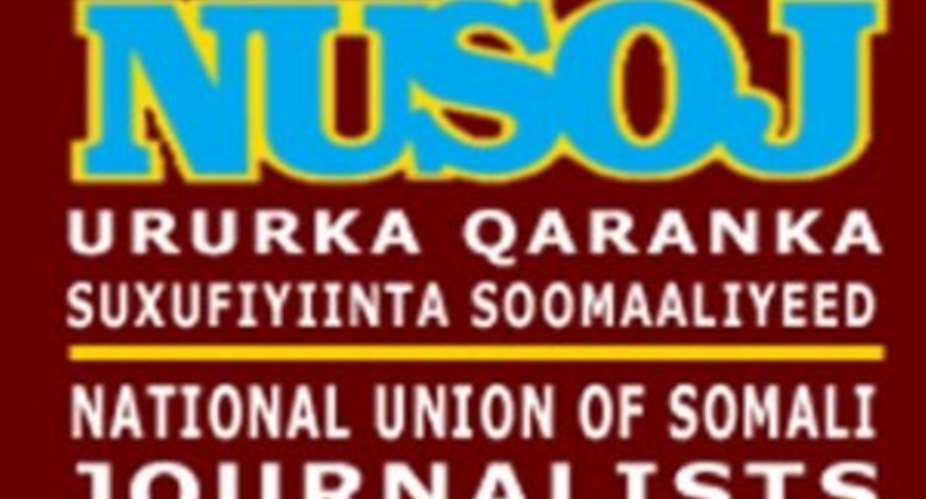MOGADISHU, Somalia, February 19, 2013/African Press Organization (APO)/ -- Forty-five media stakeholders gathered on Monday, 18 February, in Mogadishu to make consultations about state of the media in Mogadishu with particular focus on media law reform, security of journalists and persecution of journalists.
The stakeholders welcomed the decision of the government through Ministry of Information, Telecommunications and Posts in opening media law 2007 for consultation in view of reviewing it.
The media law, which was hastily passed by the former Transitional federal Parliament in Baidoa on 8 December 2007 is not in line with provisional federal constitution of Somalia and it does not meet international standards, despite repeated appeals from the media community against this law.
The media law of 2007 fails to preserve freedom of expression and media freedom. The government has control over the media in this Law by determining rules for media operation and defining journalists' professional standards. Media freedoms and the right to freedom of expression can be restricted in violation of international law due to overbroad definitions, vaguely phrased articles and the creation of vaguely defined prohibitions and disproportionate punishment to journalists and media organizations in this law.
The consultative meeting, which was organized by the National Union of Somali Journalists (NUSOJ), called for “far-reaching review of the media law” to ensure it is in conformity with the Somalia's provisional constitution and respects international standards on freedom of expression and information.
“We are pleased by the government's initiative to open the media law for consultations to review it within first three months' of its existence” said Omar Faruk Osman, NUSOJ Secretary General who mentioned that previous cabinets of former Transitional Federal Government failed to honour their promises to review this law.
The meeting agreed to put together a committee to review the law in consultations with media stakeholders and other concerned stakeholders in order to repeal the problematic provisions in this law.
The meeting also examined the proposed communication bill which is thought to be needlessly problematic by the media stakeholders. This bill does not repeal December 2007 media law, confuses media's efforts to amend media law 2007 and does not stand for the needs and ownership of Somalis.
The meeting was “united in its concern that Somalia is increasingly unsafe for journalists, to gather and relay information and views” mentioning increased killings of journalists in last year.
Welcoming the announcement of the Prime Minister of Somalia Abdi Farah Shirdoon in rewarding financially anyone who provides information leading the arrest and conviction of journalist killer, the meeting called on the government “to establish special protection force for journalists by formally empowering it to investigate crimes against journalists and make charges.”
Troubled by the continued persecution of journalists under Somalia's penal code, the meeting called upon the government “to end use of Somali Penal Code against journalists for practicing journalistic work.”
Media Stakeholders collectively decided, “to start countrywide campaign to defend media freedom and journalists' identity while opposing measures to muzzle the media”.





 Tuesday’s downpour destroys ceiling of Circuit Court '8' in Accra
Tuesday’s downpour destroys ceiling of Circuit Court '8' in Accra
 SOEs shouldn't compromise on ethical standards, accountability – Akufo-Addo
SOEs shouldn't compromise on ethical standards, accountability – Akufo-Addo
 Father of 2-year-old boy attacked by dog appeals for financial support
Father of 2-year-old boy attacked by dog appeals for financial support
 Jubilee House National Security Operative allegedly swindles businessman over sa...
Jubilee House National Security Operative allegedly swindles businessman over sa...
 Nobody can order dumsor timetable except Energy Minister – Osafo-Maafo
Nobody can order dumsor timetable except Energy Minister – Osafo-Maafo
 Mahama wishes National Chief Imam as he clock 105 years today
Mahama wishes National Chief Imam as he clock 105 years today
 J.B.Danquah Adu’s murder trial: Case adjourned to April 29
J.B.Danquah Adu’s murder trial: Case adjourned to April 29
 High Court issues arrest warrant for former MASLOC Boss
High Court issues arrest warrant for former MASLOC Boss
 Align academic curriculum with industry needs — Stanbic Bank Ghana CEO advocates
Align academic curriculum with industry needs — Stanbic Bank Ghana CEO advocates
 Election 2024: We'll declare the results and let Ghanaians know we've won - Manh...
Election 2024: We'll declare the results and let Ghanaians know we've won - Manh...
